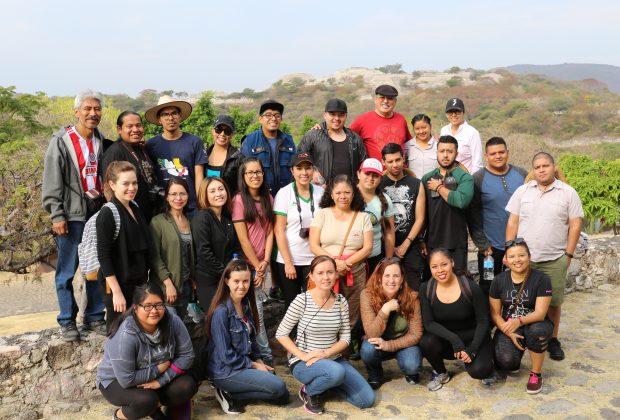By: Lidieth Arevalo, CMSC Newsletter "El Magonista" ~ April 10, 2017
The California-Mexico Studies Center (CMSC) is pleased to announce that we have pre-selected 50 DACA-mented students to participate in our
Summer 2017 California-Mexico Dreamers Study Abroad Program. The program will offer Dreamers the unique opportunity to participate in a travel-study program from August 1 to August 21 , 2017 at the prestigious Mexican graduate school
Colegio de la Frontera Norte (COLEF) in Tijuana, Baja California.
Despite the uncertain status of DACA under the Trump Administration, many Dreamers are still willing to take the chance to study abroad this summer. In fact, the CMSC received Dreamers' applications from 66 different colleges and universities throughout the United States.
Also, this is the first time the CMSC will be taking Dreamers from 16 different states, but the program's return policy model will remain the same and Dreamers will be required to return to the U.S. as a group on August 21st, to ensure legal re-entry into the U.S. and a safe return home.
Read the following Chronicle of Higher Education article that features our upcoming Dreamers Study Abroad program:
The chance to visit his home country was too good to pass up for José G. Rivas, a 27-year-old graduate student in counseling at the University of Wyoming who was brought to the United States illegally when he was 6.
This summer, as part of the
California-Mexico Dreamers Study Abroad Program, he hopes to connect with relatives he hasn't seen in more than two decades, as well as those who were deported from the United States during the Obama administration.
" I can't wait to see the house that I have vague memories of when I was little," he says of his childhood home in Texcoco, northeast of Mexico City. " I've only been able to Google Earth it and see the streets."
It gives students a chance to visit their hometowns, research, study, and present their findings at an international immigration conference at the
Colegio de la Frontera Norte, a Mexican graduate school located in Tijuana, Baja California, Mexico.
Despite the uncertainty about DACA's future, the program received applications from 67 colleges in 16 states for this summer's session, program administrators said.
Costly Application
The vast majority of undocumented students who study abroad do so in short-term educational visits like this, often to the countries where they were born. Few undocumented students can afford to study abroad;
the Advance Parole application alone costs $575. Mr. Rivas's sister started a
GoFundMe drive to help him raise money for the trip, and Ms. Morales Castro raised money in a similar online pitch.
When Mr. Rivas learned about the California-Mexico trip, he consulted his professors and mentors. Some said it wasn't worth the risk while others described it as a chance of a lifetime. His relatives had reason to be nervous; among those who have been deported was a cousin who was pulled over for having a broken windshield then deported for driving without a license. In rural Wyoming, where he and Mr. Rivas lived, public transportation is sparse and undocumented people who are ineligible for driver's licenses often, like his cousin, live in fear of being pulled over.
It took a Skype call from the director of the CMSC's Dreamers Study Abroad program to persuade Mr. Rivas's family that he'd be safe. There's strength in numbers, Mr. Rivas figured, and the program had gone to great lengths to reach out to government officials on both sides of the border in case they encountered any problems.
Meanwhile, as they weigh the possible risks and rewards of traveling abroad, the messages that students are receiving from the federal government alternate between reassuring and ominous.
They point out that while DACA recipients are still here undocumented, they're not a priority for deportation.
